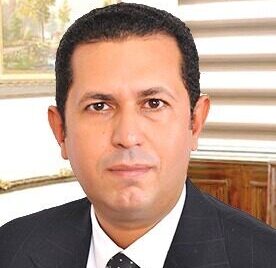India invited Egypt to the G20 summit. President Abdel Fattah El Sisi took part in celebrations of India’s 64th Republic Day. These two events admirably reflect the historical ties between the two countries.
The invitation also confirms Egypt’s regional and international status and its influential role in global economic and political matters.
India and Egypt have enjoyed steady political relations for decades. Both countries were among the founders of the Non-Aligned Movement during the time of president Gamal Abdel Nasser and Indian prime minister Jawaharlal Nehru in 1955. Since then, a firm relationship developed to encompass the political, economic, military and cultural fields. The two share a deep political understanding in many international issues because they stand for peace and development. The partnership between both countries has deepened in recent years with successive visits by India’s foreign and defence ministers to Cairo. President Abdel Fattah El Sisi was in India in October 2015 and in September 2016, giving bilateral relations a further boost.
That India wants Egypt to attend G20 meetings emanates from its strong belief that Cairo can interact positively in all discussions to restore global economic stability amid the current challenges arising from the coronavirus pandemic and the war in Ukraine.
Trade between Egypt and India rose 75 per cent in 2021-22 to reach its highest-ever level of $7.26 billion. Around 50 Indian companies operate in Egypt, providing direct employment for 38,000 Egyptians.
Ties between India and Egypt have been a factor in creating fertile ground for mutual co-operation during India’s presidency of the G20, pushing Egypt to work on global food security and finding support mechanisms for international financing institutions to become more resilient in face of the current global crises.
Egypt is also keen to push forward the World Trade Organisation (WTO) reform agenda by preparing a work plan to expedite the implementation of sustainable development goals (SDGs), reaching an international framework that integrates emerging economies into global value chains. Egypt is also keen on co-ordination with G20 so that the latter will take serious steps to implement the outcomes of the UN Climate Change conference (COP27), which was held in the Red Sea resort city of Sharm el-Sheikh last November. COP27 requires the advanced countries to commit to its pledges concerning financing, mobilising private investments from the international business community in the development sectors of priority in the developing countries, notably the food, infrastructure and energy.
India’s presidency for the G20 throughout this year is considered a big chance for the group to restore its effectiveness after its capacity for taking decisions to tackling economic crises has dwindled in recent years due to the Ukrainian-Russian crisis – and Russia is an influential member in the G20.
Egypt’s presence in different economic meetings is important since its guarantees using the outcomes of these meetings to serve our interests and those of the developing countries with regard to food and energy.
Otherwise, Egypt’s absence from these meetings will mean that in it will not be visible on the international stage.
The countries of the G20 represent 60 per cent of the world’s population, contribute 80 per cent of gross world product, and 75 per cent to global trade. Therefore, Egypt’s attending the G20 summit is important as it will become an important player in economic decision-making at international level.
Mohamed Fahmy is the editor-in-chief of The Egyptian Gazette and the Egyptian Mail newspapers






Discussion about this post